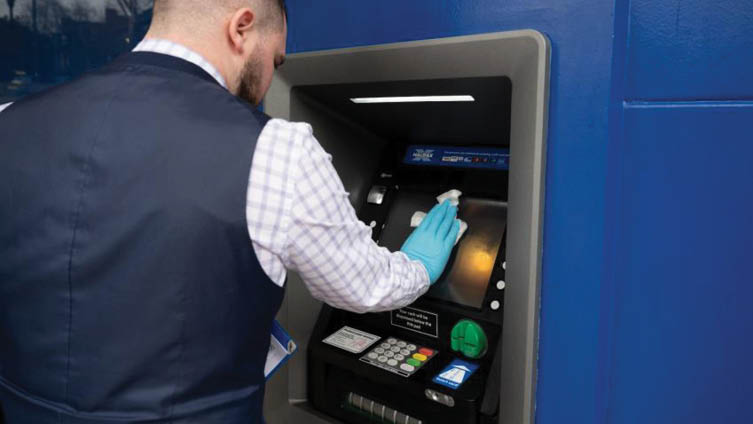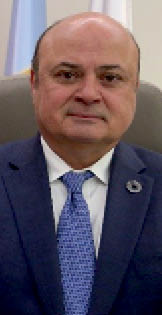The Palestinian economy operates in a highly risky and challenging environment, which over the past years has caused a series of crises and shocks, both political and economic, most recently with the clearing-of-revenues crisis with the Israeli side in 2019.* The consequences and effects of these shocks on macroeconomic performance have been reflected in fluctuations and instability in the rates of growth, inflation, interest, and currency exchange. The year 2020 is no exception. In February, exposed to a new crisis due to the global pandemic of COVID-19, the economy has been thrown into uncertainty, impacted by a complete lockdown of the entire country.
This health crisis, however, is different and global in nature, covering the majority of countries worldwide to varying degrees and with varying impact due to the different capabilities of the affected countries to respond to and cope with it. The first of its kind to be experienced in Palestine in modern history, it is expected to have consequences for numerous activities and economic sectors and to affect the macroeconomic level.
The Palestinian Monetary Authority (PMA) has always prepared and planned for dealing with crises, as in Palestine we have an exceptional case due to the political turmoil. We must constantly cope with difficult situations yet have managed to ensure a safe and sound banking sector. Our responsibilities are inclusive and aim to ensure financial steadiness and stability for all economic sectors of the Palestinian economy.

In Palestine, the novel coronavirus started spreading in Bethlehem before other cities became infected, which led President Mahmoud Abbas to declare a state of emergency. In addition, the government took a series of precautionary measures to limit COVID-19’s spread, including the closure of schools, soon followed by the closure of restaurants, clubs, and cafés, and finally of all nonessential businesses. These measures were implemented by various governors to different degrees and at different times, based on their concerns about the spread of the disease in their governorates. Further precautionary measures by the government are expected to follow in later stages, depending on general developments and on the spread of the virus.
The pandemic is expected to have economic and social implications, affecting various aspects of the lives of Palestinians. The severity of these effects, however, will vary depending on the expected length of the pandemic and possibly even on the development of an appropriate vaccine or of medication to treat the virus. It is also expected that some sectors and activities will be affected more directly than others. Among the hardest hit of these is the tourism sector that has been directly affected by the closure of border crossings, the suspension of movement, and the departure of all tourists from Palestine. The impact extends also to the sectors and activities that are related to tourism, such as transportation and some handicrafts, as well as restaurants and hotels.
The Palestinian Monetary Authority has been provided with US$1.5 billion to ensure the liquidity of the local economy. The total assets of the Palestinian banking system amount to US$17.4 billion, total deposits US$13.57 billion, total credit US$9.3 billion, as of the end of Q1, 2020.
The education sector has been completely suspended as a result of the declared state of emergency and the subsequent closure of all educational institutions at all levels, impacting other economic activities directly associated with this sector. This crisis is expected furthermore to have a direct impact on the government’s finances, as it faces increasing commitments and obligations to confront the virus. Many economic activities are being affected by the impact of the virus, leading to their decline, which will directly affect the volume of government revenues that are expected to decline significantly.
Loan payments have been suspended for all borrowers for four months and the tourism sector for six months, subject to extension.
Accordingly, the PMA has taken a series of internal and external measures to manage the crisis, including the activation of the Emergency Committee of the PMA and the engagement in consultative meetings with banks and the Association of Banks in Palestine. These measures have resulted in a number of decisions that aim to facilitate citizens’ lives and mitigate the consequences of the crisis while stimulating the market and moving the economy onward as well as maintaining the safety of employees and citizens in dealing with banking services.
The PMA has implemented its business continuity plans, tested in advance to ensure that all critical operations are working, especially the national payment system (RTGS) to make sure that all local financial transactions are done through the RTGS and all international transactions through SWIFT. Our main goal is to keep the banking sector working and to provide the market with enough funds to fulfill needs and ensure liquidity.
The PMA has also issued numerous announcements and instructions to banks, microlending institutions, and money changers to give them guidelines on how to work during the emergency situation and safeguard depositors’ moneys. All series of instructions were issued consistent with the government decisions and developments that have taken place since March 5, 2020, to mitigate the possible economic effects of the crisis. The most important of these is the postponement of periodic monthly installments for all borrowers for the next four months, subject to extension, and for borrowers from the tourism and hotel sectors for the next six months, also subject to extension. That means that about US$1.5 billion is provided to ensure the liquidity of the local economy. Other important actions taken include suspending procedures of defaulting and reducing the number of checkbooks granted to customers, especially individuals, and suspending the classification of checks as bounced for those affected by economic conditions during the emergency period.

Customers are encouraged to use online banking services and may use any of the 704 ATMs available among all banks without extra charge to withdraw their funds.
But most importantly, the PMA has encouraged all individuals and companies to use electronic banking services in order to keep them safe and comply with the preventive measures issued by the Ministry of Health. As people are ordered not to leave their houses, all banks have provided their customers with electronic banking services that include online banking, phone banking, and mobile applications. Customers are urged to use their ATM cards to withdraw or deposit funds instead of entering the branches in order to minimize the risk of infection. The PMA has connected all ATMs in Palestine under one national switch “194,” which allows individuals to use any ATM free of charge. And all banks have increased the amounts of money that can be withdrawn from ATMs.
I would like to assure everyone that the PMA and the banking sector are fully aware of the future implications that may result from this health crisis. You may rest assured that we will keep working to stabilize our economy and help the most affected sectors to rise again. Hand in hand with the government and the private sector, we will be able to overcome this pandemic and its economic repercussions. Stay safe!
*For more information, please see “Palestinian socioeconomic crisis now at breaking point,” United Nations Conference on Trade and Development, available at https://unctad.org/en/pages/newsdetails aspx?OriginalVersionID=2180.


